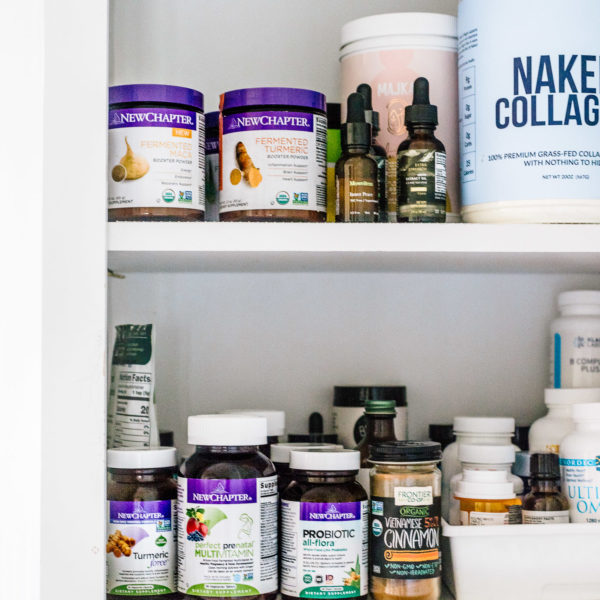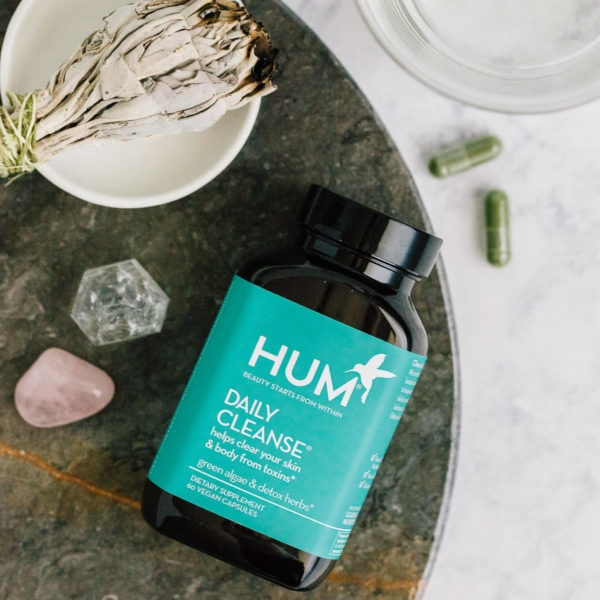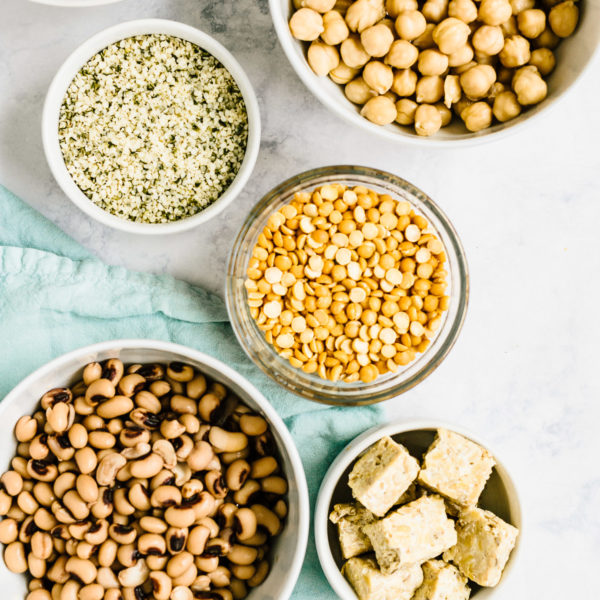Even if you can’t snap your stress away, incorporating these 5 simple practices can significantly help manage stress daily. Try incorporating one or all of these simple stress-relieving practices to help minimize stress and add more calm to your life.

We all feel stress from time to time. It’s pretty much inevitable. And that’s not always a bad thing! A little bit of stress is actually good for keeping us focused and motivated. It’s prolonged stress wreaks havoc on our bodies causing inflammation, aging, cravings, hormone imbalances, poor sleep –the list goes on and on. In order for us to be functioning optimally, we need to address our stress.
Taking a proactive approach to managing stress can help us feel more centered and at ease. To do this, it’s important to identify your stressors and build out your “toolkit” of ways you find your calm. This takes some trial and error. But along with nourishing your body, managing your stress will be the best thing you can do for your long-term health and well-being.
In the meantime, here are 5 simple ways to manage stress daily. While none of these practices are ground breaking, it’s often the simple things that have the biggest impact when done consistently. Try incorporating one or all of these simple stress-relieving practices to help minimize stress and add more calm to your life.
1. Write it down
No matter how you go about it, getting words out of your head and onto paper can help bring a sense of calm. This can look like creating to-do lists, jotting down three things you’re grateful for, or a more detailed “dear diary” experience where you let the words flow out into your favorite notebook.
I’ll admit formal journaling has never been a practice I’ve stuck with long enough for it to become a habit. Although, I do feel better when I get thoughts and feelings out of my head and on to paper. I think about it like internet browser tabs but only in my mind. The more tabs I have open, the more stressed I feel. It’s hard for me to concentrate, my mind constantly races, and some days it feels like I’m on the verge of crashing. The solution? Writing it down. Once I’ve written down what’s taking up my mental bandwidth, it feels like I can close out tabs that have taken up too much brain space. I feel lighter, I can think more clearly and ultimately less stressed.
2. Move your Body
It’s often said that exercise can be as effective as prescription medication for treating anxiety. While this isn’t a recommendation to stop your medication and go for a run, it shows the power movement. Being active and exercising has been shown to significantly reduce stress, with the strongest benefits when exercising regularly. There are several reasons exercise can reduce stress, but the main reasons have to do with its effect on your stress hormones. Exercise lowers your body’s stress hormones — such as cortisol. It also releases endorphins, which are chemicals that improve your mood and act as natural painkillers.
Try to find movement daily to take a proactive approach to managing your stress. Whether it’s incorporating more physical activities you enjoy or scheduling in a formal workout, the goal is finding something you enjoy. When you do what feels good to you, whether that’s restorative yoga, a walk around the block, or simply dancing around the kitchen while making dinner, it’s easier to make it a habit. When you’re already feeling stressed, prioritizing movement can be an instant stress-reliever. For me, this looks like going on a walk. The fresh air and repetitive movement always helps clear my mind and release built up tension.

3. Skip the scroll
Have you ever checked in with how you feel after scrolling on social media? Depending on who you follow on Instagram, or the accounts Instagram chooses to show you, it’s unlikely that you feel calm and refreshed. Mindless scrolling often leads to information overload as well as comparison. This can even happen on a subconscious level. Plus, most of us are obsessively tied to our electronic devices. Anytime we get a free moment we turn to our phones to entertain us or distract us from our daily worries. It has become a habit to use electronic devices and social media to “relax”. But this often has the opposite effect.
While there’s nothing wrong with winding down after a long day with Netflix and Instagram, this may not be the best option when you’re feeling stressed. Try replacing the mindless scroll with more intentional practices that bring on a feeling of calm. Take a bath, read an actual book, do a face mask or give yourself a manicure. You may be surprised how much better you feel!
5. Meditate
This may be one of the most effective ways to reduce stress. Don’t just take my word for it. Research shows meditation can reduce the inflammation response caused by stress (2). Meditation gives us the tools to find calm even in stressful situations. It helps us act with intention, rather than impulse. Adding meditation as a daily practice helps train your mind and body to find peace, even in stressful situations.
But like journaling, meditation can take some time to make a habit. It’s something I’m working on. One thing that’s helped me is remembering meditation is not about perfection. That’s why it’s often referred to as a meditation “practice”. Start with a one minute guided meditation. Use a mediation app. Try simply taking a moment to pause and breathe. When you take the time for a sacred pause it’s a reset for your body and mind.

5. Support with supplements
Adding herbs and supplements to your daily routine is an easy way to help your body manage stress daily. While there are several supplements that can promote stress and anxiety reduction, some of my favorite include Ashwagandha and L-theanine.
Ashwagandha ROOT EXTRACT
Ashwagandha is an herb used in Ayurvedic medicine and a popular natural supplement for stress and anxiety. It belongs to the family of adaptogens, which are natural herbs that can help your body better cope with daily stressors. Ashwagandha has been shown to lower cortisol levels, reduce symptoms of stress, improve focus and concentration, and promote a greater sense of calm in stressful situations.
L-THEANINE
You may have heard green tea can help reduce stress. This is true thanks to it’s high levels of L-theanine, an amino acid that effectively fights stress. L-theanine is linked to improving relaxation, increasing your resilience to stress, and boosting your mood. Since L-theanine is largely uncommon in our diets (unless you drink large amounts of green tea) supplements make it easy and convenient to get your daily dose.
HUM Nutrition Calm Sweet Calm
This dynamic duo of ashwagandha root and L-theanine is conveniently found in Calm Sweet Calm from HUM Nutrition. I absolutely love the science behind this product which makes it so effective.
Calm Sweet Calm is formulated with Sensoril®, a patented form of ashwagandha that’s significantly more potent than other formulations on the market. The benefit being you need much less of it for the same stress-fighting effects. The full-spectrum ashwagandha HUM used shows clinically demonstrated efficacy at 125 milligrams (the daily dosage in Calm Sweet Calm), whereas generic versions require 300 to 600 milligrams to produce the same calming effects.HUM also uses 200 milligrams of L-theanine in Calm Sweet Calm. Research shows its effectiveness at this dosage to improve relaxation, increase your resilience to stress, and boost your mood.
Bonus : Be mindful of your diet.
I couldn’t talk about how to manage stress daily without mentioning nutrition. Certain eating patterns like too much sugar or alcohol can actually worsen anxiety and how we manage stress. This can become a vicious cycle when we turn to food to cope with stress. Focusing on nourishing your body with nutrient-dense food and staying hydrated can help you proactively manage your stress.
Rather than having a restrictive mindset, prioritize leafy greens, plant-based protein, healthy fats and fiber rich carbs at each meal. This will help prevent a blood sugar spike and crash, can reduce anxiety, and keep your energy levels up. It’s also equally important to stay hydrated! When you’re not adequately hydrated your body can’t function optimally. You can feel foggy, tired, and actually crave more sugar.




Comments (0)